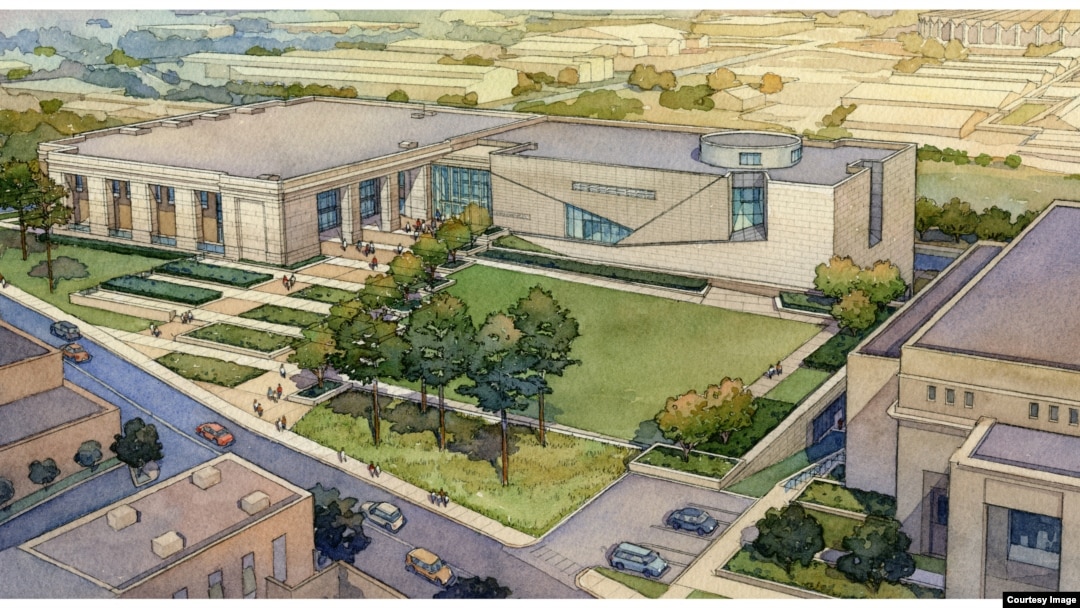In the 1950s and 1960s, the southern U.S. state of Mississippi had a reputation worldwide as a hotbed of white racism, where black people were segregated by law and denied many basic rights. The civil rights movement faced hostility and violence in Mississippi until federal legislation ended segregation there and in other southern states in the mid-1960s. On Oct. 24, there will be a ground-breaking ceremony in the state capital of Jackson for a museum that will tell the story of that struggle.
The project involves the construction of two museums on one site. One will tell the general history of the state and the other will examine a particularly painful part of that history, according to Mississippi's Director of Archives and History, Hank Holmes.
"The Mississippi Civil Rights Museum takes a 30-year period of the history presented in the Museum of Mississippi History and tells in great detail the story of the modern civil rights movement in Mississippi,” he said.
As part of the planning for the museums, Holmes says officials held meetings around the state where average citizens could express their own views on civil rights and race relations.
"While there has been a great deal of progress, people tell us there is still a long way to go in terms of further understanding each other, acceptance," Holmes said. "So, on the surface, and even skin deep, there has been, I think, some wonderful and significant change. But for society to come together, both we here and everywhere in the country still have a long way to go."
The design of the museum galleries, Holmes says, is aimed at bringing visitors through the history to confront the problems that remain today.
Jerry Ward, a retired professor, took part in the civil rights struggle in Mississippi when he was a young man. He says construction of this museum is a big step forward for the state.
"To have this museum in Mississippi is a signal that Mississippi is indeed changing," he said.
Ward says it will be especially important to engage young people of all races, who today benefit from the end of segregation but may not fully realize what happened in those difficult years when civil rights advocates faced scorn and violence.
"This museum, which to my knowledge is the only state-supported civil rights museum in our country, is arranged in such a way that that kind of discovery, as part of an interactive process, will take place," he said.
The museum will also seek private funding for conferences and events where scholars, civil rights leaders and common citizens can openly discuss the history and the continuing effort to bring about racial harmony and reconciliation.
The project involves the construction of two museums on one site. One will tell the general history of the state and the other will examine a particularly painful part of that history, according to Mississippi's Director of Archives and History, Hank Holmes.
"The Mississippi Civil Rights Museum takes a 30-year period of the history presented in the Museum of Mississippi History and tells in great detail the story of the modern civil rights movement in Mississippi,” he said.
As part of the planning for the museums, Holmes says officials held meetings around the state where average citizens could express their own views on civil rights and race relations.
"While there has been a great deal of progress, people tell us there is still a long way to go in terms of further understanding each other, acceptance," Holmes said. "So, on the surface, and even skin deep, there has been, I think, some wonderful and significant change. But for society to come together, both we here and everywhere in the country still have a long way to go."
The design of the museum galleries, Holmes says, is aimed at bringing visitors through the history to confront the problems that remain today.
Jerry Ward, a retired professor, took part in the civil rights struggle in Mississippi when he was a young man. He says construction of this museum is a big step forward for the state.
"To have this museum in Mississippi is a signal that Mississippi is indeed changing," he said.
Ward says it will be especially important to engage young people of all races, who today benefit from the end of segregation but may not fully realize what happened in those difficult years when civil rights advocates faced scorn and violence.
"This museum, which to my knowledge is the only state-supported civil rights museum in our country, is arranged in such a way that that kind of discovery, as part of an interactive process, will take place," he said.
The museum will also seek private funding for conferences and events where scholars, civil rights leaders and common citizens can openly discuss the history and the continuing effort to bring about racial harmony and reconciliation.


